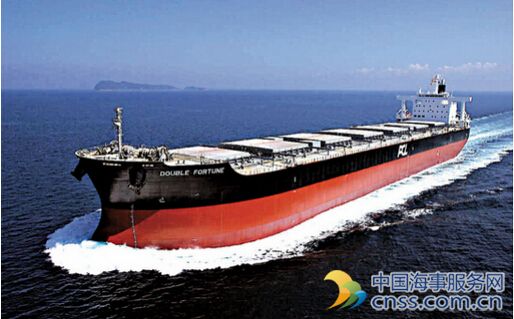Hellas: Ship owners prefer China for their vessels’ maintenance, repairs and dry-dockings

In the now distant past, Greek ship owners used to dry-dock their growing number of shipping fleet in the dockyards near the port of Piraeus. Since then, a lot has changed, most notably constant strikes and work stoppages by left-wing radicals, which plagued these once illustrious facilities, which are now close to fall into oblivion. As a result, Greek owners have migrated their business in Asia and most notably China.
In a recent weekly report, shipbroker Intermodal noted that Chinese yards remain on top of the Greek ship owners’ choice. According to Mr. Vassilis Vassiliou, Ship-repair Broker with Interyards SA, “if we divide the Chinese region into three areas – south, middle and north – increase on the Greek share is witnessed in the FUJIAN HUADONG shipyard in south China, the XINYA shipyard in the middle Zhoushan area and SHANHAIGUAN shipyard in the northern part. The remainder of the southern shipyards seem to have focused into more niche markets like gas and oil carriers, with the majority of their customers coming from North Europe. A very common choice for the Greek market remains to the COSCO group of shipyards as well and particularly COSCO Zhoushan. Since the merge of COSCO with CIC CHINA SHIPPING a few months back, there has been no visible change in the repair market. For the time being, both groups are maintaining separate commercial headquarters with COSCO tendering unified for all the shipyards and CIC individually. Saying that, as far as the presence of both companies in the Posidonia exhibition is concerned, both groups were sharing the same booth”, Mr. Vassiliou said.
He went on to note that “after a fairly silent first half of the year in the ship repair sector, we have finally a harmonized workload in the shipyards around the world. Massive discounts offered by the repair facilities and aggressive commercial strategies are still present, while in most cases a reduced maintenance program is followed by Owners. Shipping companies show almost no flexibility to the extend of service suggested by repair yards, trying to maximize the efficiency and effectiveness in all repair dilemmas such as deviation cost, way and extend of repairs, dry-docking timing. On the other hand, shipyards are trying to control contractors’ cost in order to handle this negative downturn by minimizing the overtime cost, while at the same time they are providing sophisticated solutions as an ultimate way to tackle competitiveness. As a result of the above situation was the bankruptcy of well established subcontractors after offering good service for decades. The repair market is also facing a slight increase on the afloat and underwater works that are being carried out at anchorages. This is also the result of accumulated low-level maintenance during the previous years and the softer number of dry-dockings this year”, Vassiliou said.
He went on to note that “apart from China, Singapore and MEG shipyards are leading the niche vessels’ repair market. Following the merger of ex ‘Sembawang’ with ex ‘Jurong’, the competition between the two major groups, KEPPEL and SEMBCORP MARINE in Singapore remains fierce, resulting in significant discount from both sides. With the discounted prices offered by Singaporean yards and the overall proven expertise in terms of efficiency, quality and time, this region has also attracted the attention of Owners with conventional types of vessels when projects are free from major steel renewal. In Europe, Turkish shipyards are expanding their dry-docking capacity by purchasing new floating docks, with the millstone of a new VLCC dry-dock, which is doubling the capacity of the existing VLCC docks in the region. Finally, following the Turkish shipyards expansion, a new Brazilian shipyard in Vitoria with facilities to accommodate up to Capesize/Suezmax vessels is about to start its operation heating up the competition within the existing local regime”.
Vassiliou concluded that “following up on recent trends, we can say that the laying up scheme has faded as a result of dry bulk freights covering marginally their OPEX and most of the laying up anchorages have been getting slimmer. As far as the ratification of the forthcoming ballast treatment regulations is concerned, with the exception of rumors, no solid policy has been announced yet, while the shipping market reaction to such ratification remains disputable”.
Nikos Roussanoglou, Hellenic Shipping News Worldwide
HEADLINES
- Do shipping markets want Biden or Trump for the win?
- All 18 crew safe after fire on Japanese-owned tanker off Singapore
- Singapore launching $44m co-investment initiative for maritime tech start-ups
- Cosco debuts Global Shipping Industry Chain Cooperation Initiative
- US warns of more shipping sanctions
- China continues seaport consolidation as Dalian offer goes unconditional